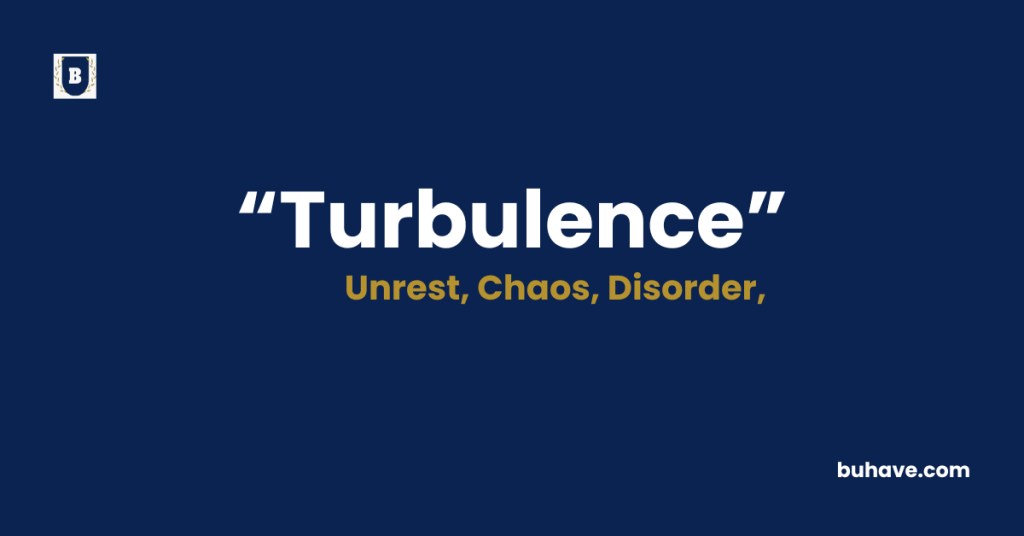The word ‘Turbulence’ (Noun) refers to a state of disorder, chaos, or violent disturbance—whether in the air, water, emotions, or social situations. In this guide, you’ll learn the full meaning, definition, etymology, synonyms, antonyms, and real-life examples of how to use ‘Turbulence’ correctly in various contexts.
Turbulence Explained in Depth
A complete and detailed guide to the word ‘Turbulence’ including meaning, definition, examples, etymology, synonyms, and antonyms.
Meanings of Turbulence
Turbulence describes violent or unsteady movement, especially in air or water. It also refers to emotional unrest, social upheaval, or conflict. It paints a picture of a forceful or chaotic disturbance, whether physical or metaphorical.
Definition
Turbulence is defined as violent or unsteady motion of air, water, or a crowd. It also means a state of confusion, disorder, or unrest, especially during emotional experiences or political situations.
Etymology
The word “turbulence” comes from the Latin turbulentia, from turbulentus meaning “full of commotion or disturbance,” related to turba, which means “crowd” or “disorder.” The term entered English in the 14th century and has retained both physical and emotional connotations of disorder.
Example Sentences
- The plane shook violently due to turbulence during the flight.
- There was political turbulence throughout the country after the election results.
- Her emotions were in turbulence after receiving the sudden news.
- The ocean’s turbulence made it dangerous for small boats to sail.
Turbulence Synonyms
- Disorder
- Unrest
- Disturbance
- Chaos
- Upheaval
- Commotion
- Agitation
- Instability
- Riot
- Tempest
Turbulence Antonyms
FAQs about Turbulence
Here are some frequently asked questions (FAQs) about the word “Turbulence”
1. What is turbulence in flying?
In aviation, turbulence is the irregular or chaotic movement of air that causes aircraft to shake or bump during flight.
2. Can turbulence be emotional?
Yes. Emotional turbulence refers to intense emotional disturbance, such as stress, grief, or confusion.
3. Is turbulence always dangerous?
No. In aviation, most turbulence is harmless, though it can be uncomfortable. In other contexts, it signals disorder but not necessarily danger.
4. Can societies experience turbulence?
Yes. Social or political turbulence refers to periods of unrest, protests, or instability within a community or nation.
5. How is turbulence different from chaos?
While both imply disorder, turbulence often refers to physical or emotional disturbances, whereas chaos emphasizes total lack of structure or control.

















